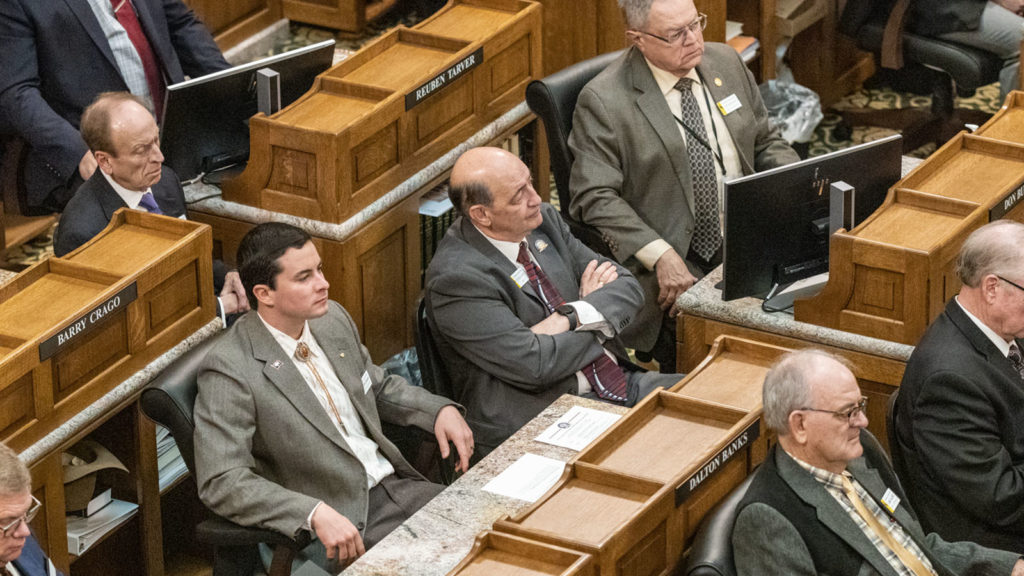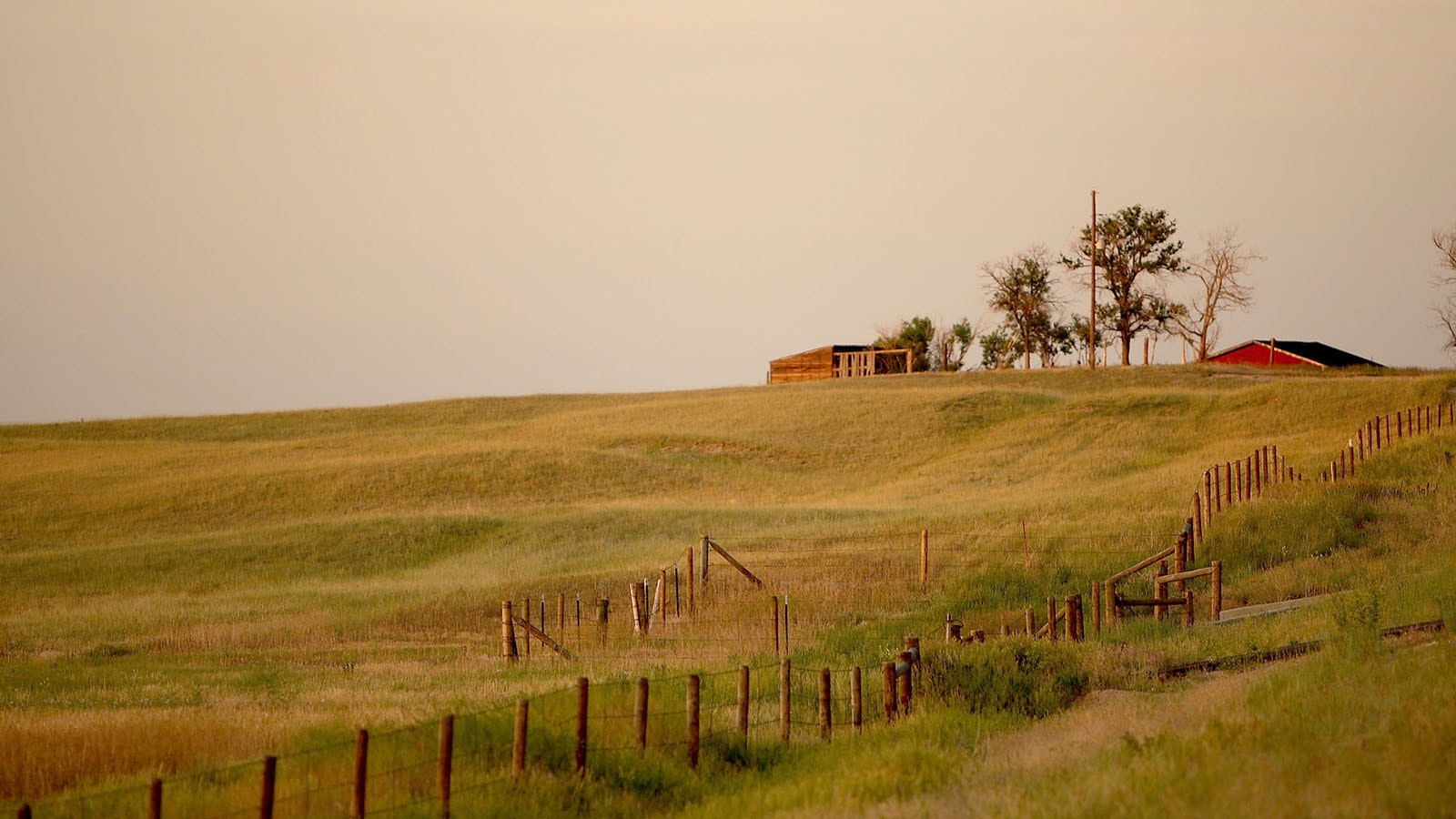The Wyoming Legislature may consider a proposal to ban foreign companies and citizens of other countries from owning agricultural land in Wyoming.
Rep. Dalton Banks, R-Cowley, sponsored House Bill 88 and said he’s passionate about the agriculture industry. He also wants to protect what little agriculture land is available in Wyoming.
“I don’t want to see Wyoming farmland sold off to Chinese and Russian companies,” Banks told Cowboy State Daily.

Registration
If passed, the bill would prevent any foreign government, business or person from buying agricultural land in Wyoming.
Existing foreign owners of agricultural land in the state could continue to hold their property, but they couldn’t sell it to another foreign government, company or person.
Existing foreign owners also would need to register with the Secretary of State’s office or face a $5,000 fine. The registration would include the name of the owner, location of the land and the number of acres.
Banks said HB 88, which has picked up five co-sponsors this week, couldn’t name specific nations, so he kept the language broad to include any foreign ownership.
Land Is Scarce
Scott George, co-owner of George Farms on Heart Mountain in northwest Wyoming, told Cowboy State Daily that irrigated agriculture land – which is 2.5% of the total acreage in Wyoming – is scarce and there’s no more water available to create more.
Agriculture land is flat and has irrigation water for lawns, which makes it attractive to residential housing developers who have been carving out ag land in northwest Wyoming for multiple subdivisions.
The Heart Mountain Irrigation District had to hire new employees to deal with all the work that these subdivisions have brought on, which are expenses passed down to water users, including farmers and ranchers in the area, George said.
He said agriculture land “is getting eaten up quite a bit, and it’s caused a lot of problems for the producers,” George said.
As irrigated land suitable for farming becomes more scarce, it also drives up prices.
Seeking Solutions
Banks said that Chinese companies are sometimes subdividing agriculture land for development, and he said his bill will help prevent that and determine how much it’s happening in Wyoming.
As much of a problem as it’s creating on Heart Mountain, George said he’s hesitant to put his support behind HB 88 because of its encroachment on free enterprise.
“I think it’s probably not a good solution. When you start to impose restrictions and what people can and can’t do with their property, then you’re stepping on their rights,” George said.
He pointed to all the problems of public lands controlled by the federal government as an example of what happens when the government gets too much control over land.
“I don’t know what a good solution would be,” George said.
‘Nations Who Hate Us’
Foreign ownership of agriculture land, especially by China, has become a nationwide issue.
Republican South Dakota Gov. Kristi Noem last month proposed legislation to ban foreign ownership of agricultural land in her state.
“With this new process, we will be able to prevent nations who hate us – like Communist China – from buying up our state’s agriculture land,” Noem said in a statement. “We cannot allow the Chinese Communist Party to continue to buy up our nation’s food supply, so South Dakota will lead the charge on this vital national security issue.”
If passed, the legislation would create a board to investigate proposed agriculture land purchases by foreign interests and determine whether to recommend to Noem whether or not to approve or deny the sale.
Federal Lawmakers
In October, top Republicans with the U.House Agriculture and Oversight committees sent a letter to the U.S. Government Accountability Office requesting a review of foreign ownership of U.S. farmland and its impact on natural security, trade and food security.
In a statement, Rep. Glenn Thompson, R-Pennsylvania, said foreign ownership of agricultural land in the United States is a growing concern.
“Foreign ownership and investment in U.S. agricultural land has nearly doubled in the past decade,” he said. “This growing trend has elevated concerns regarding national security in a time of uncertainty that is already compounded by challenges to our supply chain infrastructure, high input costs for farmers, and geopolitical pressures.
“It is critical for Congress to have a thorough understanding of foreign investment in our nation’s agricultural land.”





